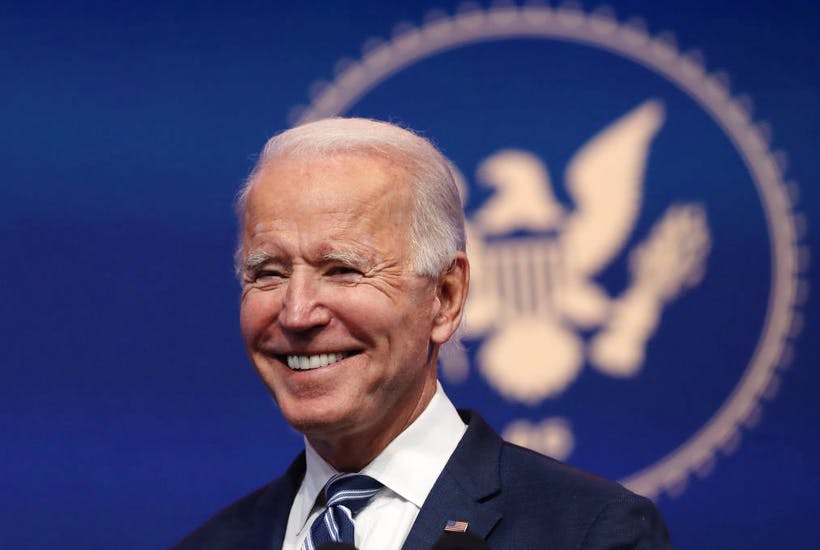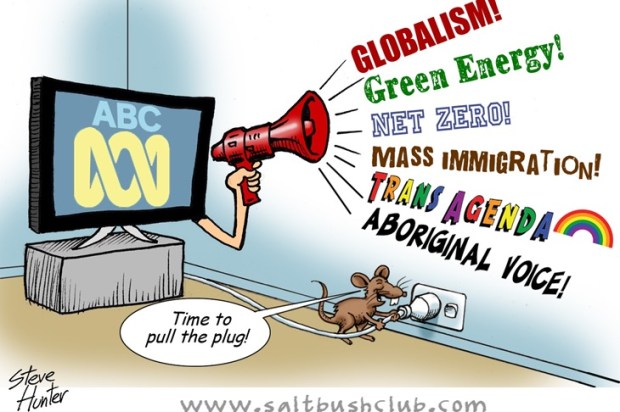“Like Lincoln, Biden comes to power at a time when a country is torn between conflicting visions of reality and identity”. So says US historian, Jon Meacham, who contributed to the Biden inaugural address.
This is just one example of the kind of hyperbole from the media and commentators generally in greeting the new administration in Washington. Hearing these histrionics, one might imagine that the Biden administration is replacing a regime like those that were finally vanquished in Germany and Japan in 1945 or that, to use Meacham’s analogy of Lincoln, is facing the prospect of a civil war that will cost 600,000 lives.
It is true that the presidential election was very close in the handful of states that determined the result in the electoral college and was also relatively close in terms of the popular vote across the country. But there have been many close presidential elections in American history. When John Kennedy defeated Richard Nixon in 1960, for example, the popular vote was almost a tie with 0.17 per cent of the total between the two candidates. With the exception of the demonstrators who forced their way into the Capitol on 6 January, the result of the election appears to have been accepted in all 50 States and the inauguration proceeded on 20 January without incident.
It is also true that the US is in the midst of a crisis in the form of the COVID-19 virus. But that is a crisis that confronts every Western nation and many other countries across the globe. The previous administration had embarked on an economic stimulus package and had begun a vaccination program. The new administration will no doubt try to accelerate both these exercises but their efforts are not likely to be dramatically different. The US is a very different society from Australia and the kinds of blanket lockdowns that have been introduced by State governments in this country would simply not be accepted by many Americans.
Before to the outbreak of the pandemic a little under a year ago, there was no economic crisis facing the US. On the contrary, the economy was in a particularly robust condition. There can, of course, be argument as to whether the Trump administration contributed significantly to this growth or merely presided over what was otherwise happening but there can be no dispute as to the figures.
In the area of foreign policy, the Trump administration was quite successful in avoiding some of the foreign entanglements of its predecessors, particularly in Syria where it resisted the calls from the foreign policy establishment to become involved in what was essentially a civil war. It is true that the Assad regime is a very unattractive one but there is no reason to assume that, if its opponents had been successful in overthrowing it, they would have been any more humane towards large sections of the Syrian population. It might be noted that during his second term as president Barack Obama also resisted similar calls for US engagement in Syria, not only from the foreign policy establishment but also from within his own administration. Whether Biden can resist the same pressures for involvement in foreign adventures remains to be seen, given that Democrat administrations seem more susceptible to them than their Republican counterparts.
The big foreign policy question confronting the new administration is, of course, China. There are suggestions in Washington of fresh approach for this subject but it seems unlikely that there will be any significant reduction in the tensions between the two nations. In one sense the political and economic confrontation between these two superpowers is inevitable and will not be resolved in the immediate future . If anything, this basic conflict is likely to be exacerbated by increasing criticism and sanctions on the part of Washington in relation to China’s internal policies, particularly its determination to impose the same political regime on Hong Kong as exists in the rest of the country and its treatment of its Uyghur minority.
Although, as already noted, the election result has been generally accepted across the US, it seems to be the conventional wisdom that, even before the Trump presidency, political divisions in the US have sharpened with many voters becoming more strongly committed to one side or the other and expressing a serious distrust of their opponents. Accepting that there is some truth in this, it is not something that is confined to the US. The Brexit vote in the UK produced an hysterical reaction from most of the groups that exercise power and influence in British society. For almost five years they tried to overturn the result of the referendum and still remain implacably hostile to Boris Johnson for his role in taking Britain out of the European Union.
And in Australia over recent years the politically correct class has exhibited a high degree of intolerance for any views that contradict their own. They do not believe in public debate on political, economic and social questions but maintain a whole lexicon of rigid dogmas that they pursue with a kind of religious fervour, although one of their dogmas is hostility to all forms of religion. They view their opponents as not just misguided but as demonstrably evil and so without any right to express their views. They reject arguments for freedom of speech on the basis that there should be no freedom to propagate error.
Despite its political divisions and other problems, many of which are shared in varying degrees by most Western nations, America has proved remarkably resilient over its history and, if the COVID-19 crisis can be overcome, the Biden administration will be able to take full advantage of its enormous political and economic power. It is not unkind to say of Biden that he is no Lincoln. But, then again, he doesn’t need to be.
Got something to add? Join the discussion and comment below.
Get 10 issues for just $10
Subscribe to The Spectator Australia today for the next 10 magazine issues, plus full online access, for just $10.


























Comments
Don't miss out
Join the conversation with other Spectator Australia readers. Subscribe to leave a comment.
SUBSCRIBEAlready a subscriber? Log in